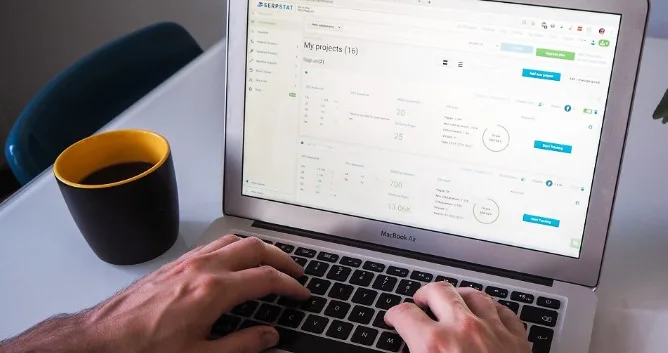
In the fast-paced world of digital business, brand consistency is a key element for success. For agencies, marketers, and businesses offering data-driven services, a white-label dashboard software solution emerges as a powerful tool.
In this blog post, we will explore the concept of white label dashboard software, its features, and the significant advantages it brings to businesses seeking to elevate their brand presence while delivering robust analytics and reporting solutions.
Understanding White Label Dashboard Software:
What is White Labeling?
White labeling refers to the practice of rebranding a product or service to make it appear as if it is created by the reseller rather than the original provider. In the context of dashboard software, white labeling allows businesses to apply their branding elements to the interface, creating a seamless and cohesive experience for clients.
Key Components of White Label Dashboard Software:
- Branding Customization:
- White-label dashboards enable businesses to customize the entire interface with their brand colours, logos, and other visual elements. This ensures that the dashboard aligns seamlessly with the business’s overall branding strategy.
- Custom Domain Integration:
- Businesses can use their domain for the dashboard, reinforcing brand identity. Clients accessing the dashboard see a URL that reflects the business rather than the software provider, fostering trust and brand consistency.
- Report Customization:
- White label dashboard software allows for the customization of reports, ensuring that every piece of data shared with clients reflects the business’s branding. This includes custom headers, footers, and color schemes to create a polished and professional look.
- Client Access and Login Page:
- The login page and client access portal can be customized to carry the business’s branding, providing a branded entry point for clients to access analytics and reports. This enhances the user experience and reinforces the business’s brand presence.
Advantages of White Label Dashboard Software:
1. Brand Consistency and Trust:
- Importance: Brand consistency is crucial for building trust and credibility. When clients interact with a white-label dashboard that aligns with the business’s branding, it fosters a sense of trust and professionalism.
- Advantages:
- Clients experience a cohesive brand journey from the business’s website to the analytics dashboard.
- The business’s logo, color scheme, and overall visual identity create a recognizable and trustworthy environment.
2. Client Retention and Loyalty:
- Importance: Delivering a branded and seamless experience contributes to client satisfaction and loyalty. Clients are more likely to stick with a service that reflects their partner’s brand.
- Advantages:
- Customized dashboards create a sense of exclusivity, making clients feel valued.
- The branded experience reinforces the business’s commitment to professionalism and attention to detail.
3. Expanded Revenue Opportunities:
- Importance: White label dashboard software allows businesses to offer analytics and reporting solutions under their brand. This opens up new revenue streams without the need for extensive development resources.
- Advantages:
- Businesses can position the white-labeled dashboard as a premium service, commanding higher fees.
- The ability to offer a branded analytics solution attracts clients seeking a tailored and professional experience.
4. Marketing and Sales Enablement:
- Importance: Branded dashboards serve as a powerful marketing tool. Businesses can showcase their capabilities and commitment to data-driven insights, attracting new clients and reinforcing their market position.
- Advantages:
- Use white label dashboards in marketing collateral to demonstrate expertise and capabilities.
- Branded analytics solutions become a selling point in sales pitches, setting the business apart from competitors.
5. Efficient Client Communication:
- Importance: White label dashboards streamline client communication by providing a unified platform for analytics and reporting. Clients can access their data in a familiar, branded environment, reducing confusion and improving engagement.
- Advantages:
- Customized reports and dashboards make it easier for clients to understand and interpret data.
- The business’s branding enhances the overall client experience, making communication more efficient and effective.
Choosing the Right White Label Dashboard Software:
- Customization Options:
- Evaluate the level of customization the white label dashboard software offers. Look for solutions that allow extensive branding adjustments, including color schemes, logos, and custom domains.
- Ease of Use:
- A user-friendly interface is crucial for both businesses and clients. Choose a white label dashboard solution that is intuitive and easy to navigate, ensuring a positive user experience.
- Feature Set:
- Assess the features offered by the white label dashboard software. Ensure that it meets the specific analytics and reporting needs of the business and its clients.
- Scalability:
- Consider the scalability of the solution. A white label dashboard software that can grow with the business ensures long-term viability and value.
- Integration Capabilities:
- Check for integration capabilities with other tools and platforms that the business uses. Seamless integration enhances efficiency and data accuracy.
Conclusion:
In the realm of data-driven business, the power of white label dashboard software cannot be overstated. It serves as a bridge between powerful analytics capabilities and a seamless, branded experience for clients. Businesses that leverage white label dashboards unlock a range of advantages, from enhanced brand consistency to new revenue opportunities and improved client communication.
As the digital landscape continues to evolve, the ability to offer branded analytics solutions becomes a strategic imperative. White-label dashboard software not only reinforces the business’s brand identity but also positions it as a leader in the competitive landscape of data-driven services. Embrace the advantages of white label dashboard software, and elevate your brand presence while delivering robust analytics solutions to clients with sophistication and style.



